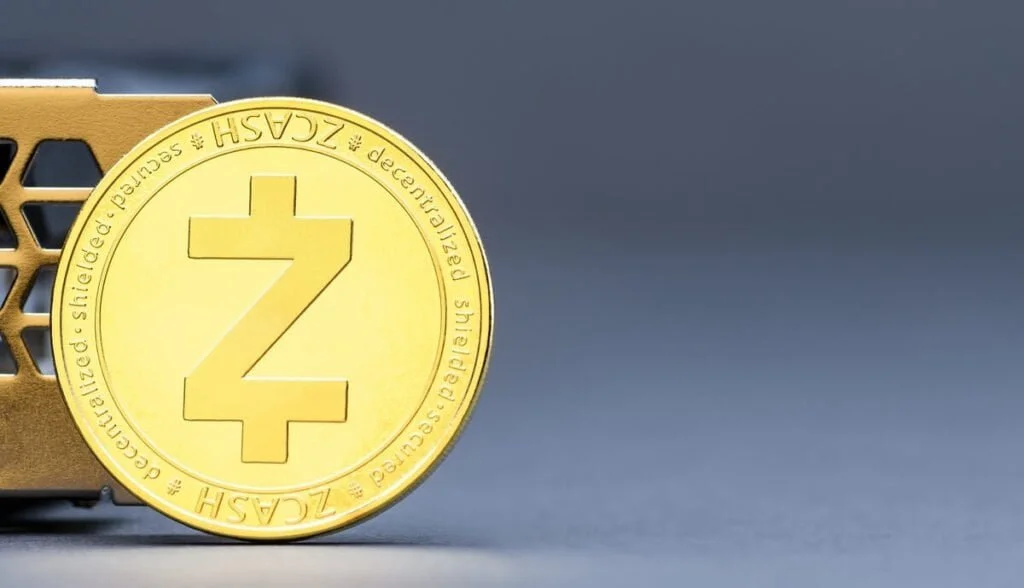Most cryptocurrencies are designed to safeguard privacy. A privacy cryptocurrency can hide each wallet’s identity and balance. This article discusses privacy cryptocurrencies, their benefits, and their varieties.

Some cryptocurrencies were developed specifically to protect users’ anonymity. Even if the digital transaction ledgers are still published on the open internet and are accessible to anybody, a privacy coin can conceal the identity of each wallet on the blockchain as well as the amount of money it contains.
What are Privacy Cryptocurrencies?
Privacy coins are a type of cryptocurrency that is designed to protect users’ anonymity by concealing the flow of money through their networks. They make it tough to determine who sent what to whom, which is good if you don’t want anyone snooping on your financial activity because it makes it difficult to work out who sent what to whom.
Transaction information and wallet balances are kept anonymous on each privacy coin through the implementation of a unique method. In general, these tactics entail using temporary addresses and dividing each transaction into a big number of smaller ones.
Additionally, each transaction is split up into a huge number of smaller ones. In place of a ledger that is open to the public’s inspection, crucial information about each complete or partial transaction may rather be recorded in an encrypted manner.
Benefits of Privacy Cryptocurrencies
- Security and User Privacy
- Independent Financial transactions
- Safeguard Anonymity
Security and User Privacy
Users are more concerned about their privacy than they are about any other aspect of their experience, and this sensitivity is amplified when it comes to essential information, such as their financial transactions. Because of this, privacy-focused cryptocurrencies are of the utmost importance when it comes to defending and preserving the interests of users in a decentralized environment.
They create a secure environment for financial transactions while also ensuring that private user data is protected from being accessed by arbitrary third parties.
Independent Financial Transactions
Users of certain privacy coins, such as Zcash and Dash, are given the ability to choose whether or not they want their transactions to be hidden, providing them with complete control over the information relating to them. This level of confidence could encourage more people to join the cryptocurrency movement.
Safeguard Anonymity
Additionally, as cryptocurrencies continue to make their way into the mainstream and their adoption rate continues to rise, these coins can be utilized to safeguard the anonymity of enterprises and organizations.
They make it possible for companies to sign deals using smart contracts that are stored on the blockchain, and they ensure that any financial transactions that take place between the companies are secure. The applications are practically limitless in scope.
Furthermore, numerous analyses have demonstrated that less than one percent of cryptocurrency transactions are related to illegal behavior.
Despite this, cash continues to be the most convenient tool for criminals. In light of all the benefits associated with privacy coins, it is possible that completely prohibiting their usage would pose a risk to the privacy of users and, as a result, the technology that lies beneath them.
Types of Privacy Cryptocurrencies
- Monero
- Zcash
- Polkadot
Monero

Monero is the most widely used and well-known cryptocurrency for private transactions (XMR). The core blockchain technology that underpins Monero is a substantially modified version of Bitcoin that originated from the now-almost-extinct cryptocurrency known as Bytecoin (BCN).
A global mining network is used to validate new data blocks to maintain the integrity of the cryptocurrency’s proof-of-work design, which is similar to that used by Bitcoin.
The mining process makes use of an algorithm called RandomX. This method was developed to operate on standard hardware, such as the central processor found in a smartphone or personal computer.
A sophisticated method known as a ring signature is utilized in the signing of Monero transactions. In practice, each one-of-a-kind transaction is accompanied by the digital signatures of a wide variety of signers, but only one of them is responsible for actually completing the digital transfer. It is impossible for even the most sophisticated cracking methods now available to determine which signature is associated with which transaction.
A method that works similarly conceals the total value of each transaction by chopping it up into smaller pieces called shards. These shards are then packaged together with shards from various other transactions. RingCT, which stands for ring confidential transactions, is the name given to this function.
In addition, temporary addresses are generated for each transaction in Monero, and these addresses are guarded by a pair of distinct private cryptographic keys. The owner of both private keys of a Monero transaction is the only person who can view the transaction’s ultimate target address.
When taken together, these characteristics make it extremely difficult, if not impossible, to monitor the flow of assets via the Monero system. Despite this, every activity leaves a permanent record that is just as impenetrable as a transaction using Ethereum or Bitcoin. Each transaction must make use of Monero’s built-in anonymity capabilities.
Z Cash

The cryptocurrency known as Zcash (ZEC) was initially a Bitcoin clone that, over time, included additional privacy-protecting capabilities. Since its Equihash mining algorithm operates at a much higher speed when it has access to a large amount of high-speed memory, it is a costly endeavor to design and implement specialized microchips for the sole purpose of mining Zcash.
The privacy-enhancing properties of Zcash are made possible through a technique known as zero-knowledge cryptography. A transaction key, also known as a zk-SNARK, can be generated by a multi-step process that combines mathematics with high-quality randomness. This key can be used to prove that a transaction took occurred without giving any extra information regarding the transaction itself.
In contrast to Monero, this privacy feature does not remain active all the time. Zcash owners have the option of sending tokens in a public transaction that is very similar in appearance to an ordinary Bitcoin transfer, or in a “shielded” transaction that utilizes zk-SNARK protection.
Transactions that are hidden from view are just as safe as Monero’s privacy measures, which are constantly active.
Polkadot

Polkadot (DOT) is a network that allows two blockchains to communicate with one another, however, it is not a privacy coin. Nonetheless, Polkadot’s data transfers now include additional privacy protections thanks to the Phala Network parachain initiative.
According to its proponents, privacy protection is an essential part of the Web3 vision, with Polkadot acting as the “digital glue” connecting numerous blockchains. This makes sense given the system’s emphasis on peer-to-peer interaction and transactions between users.
There are more privacy coins available now besides Monero, Zcash, and Polkadot/Phala; however, they are all much smaller projects. Former leaders of this group have shifted their attention due to the contentious potential for criminal activity involving privacy coins.
Decred (DCR), for instance, promotes itself as a community-driven platform with additional levels of protection. Dash (DASH) continues to provide extra privacy features, but its marketing is focused on being a quicker and more flexible alternative to Bitcoin payments.
Do not put your life savings inside a Monero or Zcash wallet, even if they have the best privacy features available. There will be a lot of ups and downs in the cryptocurrency market as it finds its footing, and privacy coins will have to overcome their association with unlawful activities.
Conclusion
There are many new types of assets appearing in the blockchain market, and privacy coins are just one of them. You should DYOR (Do Your Research) before making any investment or purchase, and you should also consider any applicable local laws and regulations.
